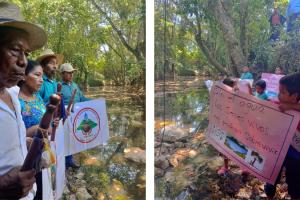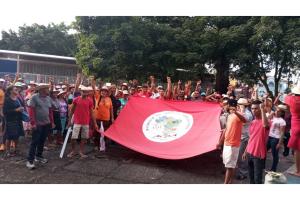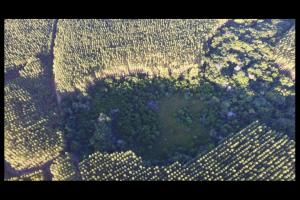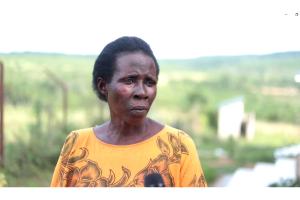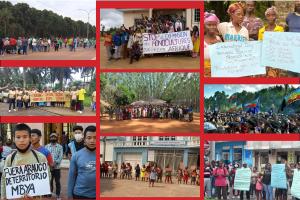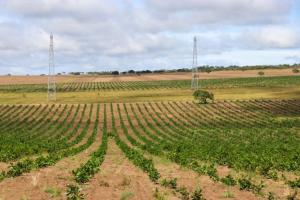Struggles Against Tree Monocultures
Corporate profit drives land grabs to install industrial tree monocultures. Where industrial plantations take root, communities' territories and lives are violently invaded, their forests destroyed and their water polluted. When communities resist, companies tend to respond with aggression. Despite this extreme violence, communities around the world are resisting, organizing and joining forces to defend their territories. Every September 21 the International Day of Struggle against Monoculture Tree Plantations is celebrated.
Articles
8 April 2024
In a letter to Guatemalan national authorities, 115 organizations from 39 countries demanded a halt to the abuses and violence that palm oil company Industria Chiquibul has been committing in indigenous and peasant communities. The organizations also called for suspension of the RSPO certification process, which they denounce as greenwashing a destructive industry.
Articles
4 April 2024
An alliance of organizations have demanded that European governments pause the mediation process and provide the communities access to the land documents and legal support to defend their interests.
Articles
2 April 2024
Brazil’s Small Farmers’ Movement (MPA) has written to the state of Pará’s authorities requesting that they urgently regularize the land tenure of three peasant communities threatened with eviction. The letter has the support of 60 organizations from several countries.
Articles
24 February 2024
Between August 4 and 7, 2023, there were violent attacks on the lives of four indigenous Tembé people as a consequence of the struggle to take back territories from the hands of the company Brasil BioFuels (BBF). In the face of this, the Brazilian Anthropological Association (ABA) sent a formal letter to the authorities requesting the immediate regularization of indigenous and quilombola territories, as well as an investigation into the mechanisms of criminalization of their leaders and the suspension of all incentives to companies involved in the violence.
Articles
24 February 2024
On August 8, 2023, the National Human Rights Council (CNDH) sent a recommendation to federal and state authorities regarding measures to protect, promote and defend indigenous peoples and quilombola, riverine, peasant and agro-extractivist populations in Pará state.
Other information
25 October 2023
The network released an open letter in which it denounces the impacts of the plantations and the crimes committed by the companies. At the same time, they demand reparation and reaffirm resistance against tree monocultures.
Other information
25 October 2023
The video "Uganda: Resisting Industrial Oil Palm Plantations" is now available in Bahasa Indonesian. It highlights the resistance of communities in Buvuma Island, in Uganda, where the Bidco company (partially owned by the transnational Wilmar company) is trying to expand its oil palm plantations.
Articles
21 September 2023
This September 21st, we once again express our solidarity with this resistance, and we share some materials that can help in understanding the importance of these struggles.
Other information
16 January 2023
The news portal Metrópoles travelled 5,700 km to denounce how the palm oil production chain affects quilombola communities and Indigenous Peoples in the state of Pará, Brazil—namely through expropriation of traditional communities, environmental impacts, and a labor history analogous to slavery.
Other information
16 January 2023
An investigation by SourceMaterial and Unearthed exposed some of the impacts of a major tree-planting carbon offsetting project in the Republic of Congo from oil giant TotalEnergies, which was announced at the end of 2021.
Other information
16 January 2023
In September 2022, two large contingents of national police and military were dispatched to oil palm plantation concession areas of the Plantations et Huileries du Congo (PHC) in Lokutu and Boteka.
Other information
11 October 2022
A recent report from the Campaign to Stop GE Trees alerts that the global release of genetically engineered (GE) trees is closer than it has ever been.
